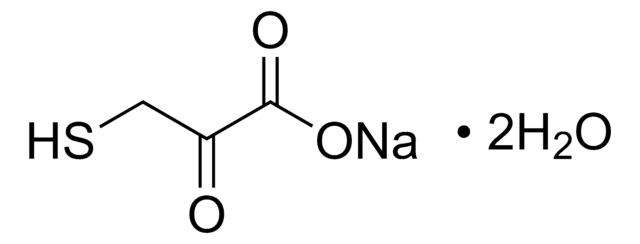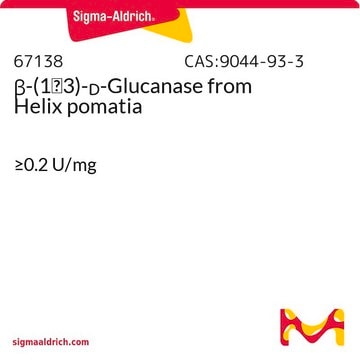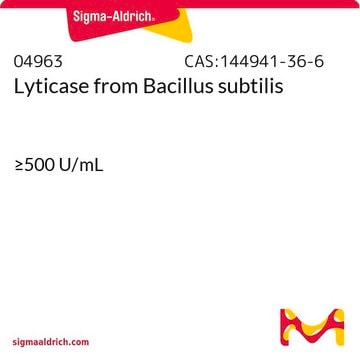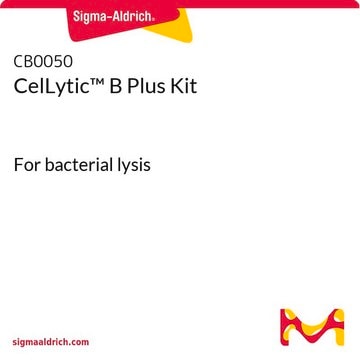C4482
CelLytic™ Y Cell Lysis Reagent
For yeast cells
Synonym(s):
Yeast cell lysis reagent
Sign Into View Organizational & Contract Pricing
All Photos(2)
About This Item
UNSPSC Code:
41116134
NACRES:
NA.56
Recommended Products
Quality Level
form
solution
General description
CelLytic Y Cell Lysis Reagent is versatile, phosphate-free and non-denaturing. It provides an effective method for cell lysis and protein solubilization. Target proteins maintain immunoreactivity or biological function. The protocol is brief and preformed at room temperature. No extreme conditions or glass beads are required. Use only 2.5-5 ml/gram yeast cells.
Application
CelLytic™ Y Cell Lysis Reagent has been used in lysis of yeast cells expressing DNA repair, Rad protein, heat shock protein (ssa1) and human interleukin 4 (hIL4).
Features and Benefits
- Fast: Cell lysis in just 20 minutes
- Efficient: Three times more efficient than glass beads
- Flexible: Lysis is enhanced by the addition of reducing reagent (DTT)
- Gentle: Non-denaturing - preserves biological activity
Legal Information
CelLytic is a trademark of Sigma-Aldrich Co. LLC
Signal Word
Warning
Hazard Statements
Precautionary Statements
Hazard Classifications
Aquatic Chronic 3 - Eye Irrit. 2
Storage Class Code
10 - Combustible liquids
WGK
WGK 3
Certificates of Analysis (COA)
Search for Certificates of Analysis (COA) by entering the products Lot/Batch Number. Lot and Batch Numbers can be found on a product’s label following the words ‘Lot’ or ‘Batch’.
Already Own This Product?
Find documentation for the products that you have recently purchased in the Document Library.
Customers Also Viewed
The beta6beta7 region of the Hsp70 substrate-binding domain mediates heat-shock response and prion propagation
Xu L, et al.
Cellular and Molecular Life Sciences, 75(8), 1445-1459 (2018)
Expression of recombinant human IL-4 in Pichia pastoris and relationship between its glycosylation and biological activity
Li R, et al.
Protein Expression and Purification, 96, 1-7 (2014)
DNA damage induced nucleotide excision repair in Saccharomyces cerevisiae
Singh RK and Krishna M
Molecular and Cellular Biochemistry, 290(1-2), 103-112 (2006)
Our team of scientists has experience in all areas of research including Life Science, Material Science, Chemical Synthesis, Chromatography, Analytical and many others.
Contact Technical Service

















